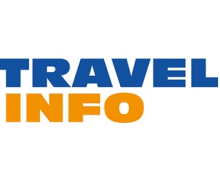Shortly after the pandemic, a period where travel agents had to navigate the logistical and financial knocks of border closures and regulations, a new challenge arrived. The initial upheaval of the Russian-Ukrainian conflict brought flight cancellations and re-routings, as airlines had to avoid Russian airspace.
Now, the knock-on effects of the war persist in the form of unstable fuel prices, escalating airline fuel surcharges and global hyperinflation. It must be added that, in the throes of these crises, travel agencies were adapting to the emergence of the NDC as many airlines’ preferred distribution. The post-pandemic period has had almost as many stresses as the pandemic.
Carefully negotiating the current inflationary period, agents try to avoid conflicts with clients who often don’t understand how the global energy crisis has impacted the cost of their travel arrangements.
Yet arguably the most financially stressful aspect of a travel consultant’s job, is the Agency Debit Memo (ADM). They are the bane of agencies and independent travel agents, because their range and numbers could easily put an agency or an individual out of business. And because clients make mistakes, ADM vendors make mistakes, airlines make mistakes and agents make mistakes.
Over a decade ago, several airlines started outsourcing their ticket and PNR auditing to vendors who were able to audit at much higher volumes. Consequently, the issuance of ADMs escalated, as did the grounds for justifying their issuance. This means that travel agents are now penalised for:
-
Not removing a seat (which the airline themselves cancelled) from a PNR;
-
Undermining a through fare by booking flights per segment, as opposed to booking ‘married segments’;
-
Adding flight sectors to an already ticketed PNR;
-
Booking a short itinerary at the end of a PNR, which might cause the GDS to price the itinerary with a notably lower fuel surcharge;
-
Not rebooking and reissuing a ticket simultaneously.
Now, agents worldwide are complaining that there is an increase in ADM errors, because third party vendors don’t appear to understand the complexity of fare rules, or cannot read PNRs, into which some of the fare rules are written.
Yet even an error as minor as using the letter ‘O’ instead of a zero in the tour code box of an air ticket, will earn an agency a debit memo. In addition, an agent who changes a full-fare, fully-refundable economy ticket two or three times, may receive a $100 equivalent debit memo, because airlines consider that ‘churning’. Agents say that third-party vendors are highly motivated to find errors, because they are financially incentivised to do so.
Alec Ingram, Senior Travel Consultant at Grindrod Travel, describes an incident where an airline was delayed in excess of 48 hours, forcing a businessman to make alternative flight arrangements. Consequently, the airline authorised a full refund, but the third-party vendor issued an ADM for the administration fee, and it has still not been ‘squashed’ several months later.
ADM stories are all too familiar. One has to wonder if agencies generally pay the smaller debits because it is not worth the time it takes to enter into the long drawn-out battle that it takes to dispute them.














